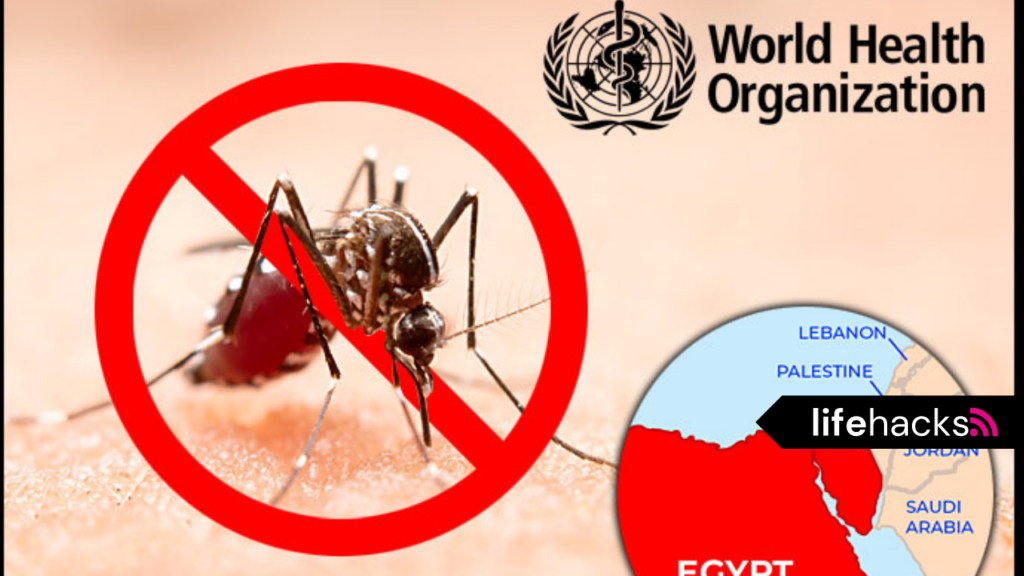Egypt has achieved a historic milestone in public health by being declared malaria-free by the World Health Organization (WHO). This certification is the result of nearly a century of persistent efforts to eliminate the disease, which plagued the country for thousands of years. Once a significant public health threat, it is now considered eradicated in Egypt due to extensive disease control measures, government policies, and international support. This accomplishment makes Egypt the 44th country globally and the third in the Eastern Mediterranean Region, after United Arab Emirates and Morocco, to achieve malaria-free status
Table of Contents
ToggleA Brief History of Malaria in Egypt
It has been a part of Egypt’s history from ancient times, impacting the kingdom as early as 1332-1323 BC, when even pharaohs such as Tutankhamun are thought to have died from the disease. During the 1940s, Egypt saw over 3 million cases per year, bringing the situation to a crisis point. Later, in the 1960s, the construction of the Aswan High Dam opened up new breeding areas for malaria-carrying mosquitos, complicating eradication attempts.
Efforts began to gain traction in the early twentieth century with legislation that prevented mosquito breeding and human exposure, such as limitations on rice planting near homes. It transmission was largely under control by the early 2000s, thanks to effective surveillance, prompt diagnosis and treatment, and public health initiatives.

WHO's Role in Malaria Elimination in Egypt
| Aspect | Description |
|---|---|
| Technical Guidance and Disease Surveillance | The WHO collaborated with Egypt to establish robust surveillance systems for rapid detection of malaria cases, particularly in high-risk border regions. This included setting guidelines for quick diagnosis and treatment, significantly reducing the time from case identification to control measures, thereby preventing outbreaks. |
| Training and Capacity Building | Extensive training programs were provided for health professionals and vector control staff, enhancing local expertise in diagnosing malaria, managing cases, and conducting entomological surveillance. This capacity building was crucial for ongoing monitoring and response activities post-certification. |
| Joint Initiatives and Cross-Border Collaboration | The WHO facilitated collaboration between Egypt and neighboring countries like Sudan, focusing on joint initiatives to prevent malaria reintroduction through coordinated vector control efforts and public health responses. This included sharing information and strategies for managing imported cases effectively. |
| Policy Development and Strategic Planning | WHO played a key role in formulating national malaria elimination policies, aligning Egypt's strategies with global best practices. This involved developing comprehensive action plans, mobilizing resources, and guiding the use of insecticide-treated nets and indoor residual spraying to reduce mosquito populations. |
Key Steps in Egypt’s Malaria Elimination Strategy
The road to malaria eradication involved several pivotal steps, aided by WHO’s consistent support:
- Elimination of Local Transmission : Egypt had to prove that no local malaria transmission occurred for at least three consecutive years. The country’s ability to rapidly respond to cases was tested in 2014, following a small outbreak in the Aswan Governorate. The outbreak was swiftly contained, demonstrating the effectiveness of Egypt’s response capabilities.
- Strengthening Health Systems : WHO assisted Egypt in building resilient health systems that could continue monitoring for malaria even after the certification. Ensuring early diagnosis and treatment for any imported cases remained a priority, supported by ongoing surveillance.
What Malaria-Free Certification Means for Egypt
Achieving malaria-free accreditation not only marks the end of a public health issue, but also demonstrates the strength of Egypt’s health-care system. The accreditation does not indicate that the struggle against malaria is over; rather, it means that Egypt must continue to work to prevent the illness from resuming its spread. This will necessitate continual attention and stringent vector control measures, with WHO continuing to support these programs through guidance and partnership.
Also Recommended Read ; What is Covid XEC and what are the symptoms of the new virus strain to look out for?
Lessons for Other Countries
Egypt’s success serves as a model for other malaria-endemic nations striving for elimination. The combination of WHO guidance, government commitment, and community involvement proved effective in overcoming significant challenges. The certification underscores the importance of international partnerships, well-coordinated public health responses, and sustained investment in healthcare.
The certification of Egypt as malaria-free is a monumental public health achievement that highlights the collaborative effort between the Egyptian government and WHO. It showcases what can be accomplished with dedication, strategic planning, and robust health systems, offering a blueprint for other countries aiming to achieve similar successes.